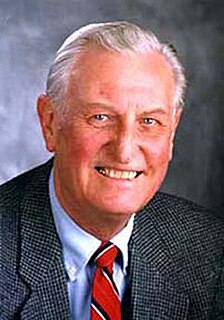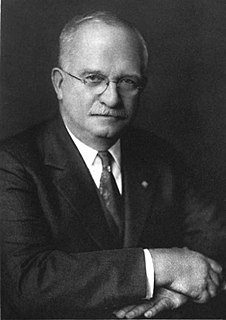Related Research Articles

The International Conference of Asian Political Parties (ICAPP) is a forum of political parties of Asia-Oceanian countries, which was launched in Manila, Philippines in September 2000. The objectives of the conference are to promote exchanges and cooperation between political parties from different countries in the area and with various ideologies; to enhance mutual understanding and trust among Asian countries; to promote Asia's regional cooperation through the unique role and channel of political parties; to create an environment for sustained peace and shared prosperity in the region.
The World Student Christian Federation (WSCF) is a federation of autonomous national Student Christian Movements (SCM) forming the youth and student arm of the global ecumenical movement. The Federation includes Orthodox, Protestant, Catholic, Pentecostal and Anglican students.
Education International (EI) is a global union federation (GUF) of teachers' trade unions consisting of 401 member organizations in 172 countries and territories that represents over 30 million education personnel from pre-school through university. It is one of the world's largest sectoral global union federations.
The Royal Australian Chemical Institute (RACI) is both the qualifying body in Australia for professional chemists and a learned society promoting the science and practice of chemistry in all its branches. The RACI hosts conferences, seminars and workshops. It is the professional body for chemistry in Australia, with the ability to award the status of Chartered Chemist (CChem) to suitably qualified candidates.

The Commonwealth Games Federation (CGF), currently known as Commonwealth Sport, is the international organisation responsible for the direction and control of the Commonwealth Games and Commonwealth Youth Games, and is governing body of the Commonwealth Games Associations (CGA). The headquarters of CGF are located in London, England.
The Society of Chemical Industry (SCI) is a learned society set up in 1881 "to further the application of chemistry and related sciences for the public benefit".

Every year, the International Astronautical Federation with the support of the International Academy of Astronautics and the International Institute of Space Law (IISL), holds the International Astronautical Congress (IAC) which is hosted by one of the national society members of the IAF.

The International Handball Federation (IHF) is the administrative and controlling body for handball and beach handball. IHF is responsible for the organisation of handball's major international tournaments, notably the IHF World Men's Handball Championship, which commenced in 1938, and the IHF World Women's Handball Championship, which commenced in 1957.
The European Chemical Society (EuChemS) is a European non-profit organisation which promotes collaboration between non-profit scientific and technical societies in the field of chemistry.

Elena Ceaușescu was a Romanian communist politician who was the wife of Nicolae Ceaușescu, General Secretary of the Romanian Communist Party and leader of the Socialist Republic of Romania. She was also the Deputy Prime Minister of Romania.

The International Association for Engineering Geology and the Environment, formerly International Association for Engineering Geology, also known as IAEG, is an international scientific society which was founded in 1964. It is affiliated with the International Union of Geological Sciences (IUGS) and has 3,798 members and 59 national groups all over the world.

Otto Vogl was an American chemist, polymer scientist, and educator.
The European Young Chemists' Network (EYCN) is the young division of the European Chemical Society (EuChemS), and aims at promoting chemistry among young people, under the age of 35, that belong to a fellow European society.

Jnanendra Nath Mukherjee CBE, FRSC, was an Indian colloid chemist.

The Institute of Chemistry Ceylon is the successor to the Chemical Society of Ceylon and was established in the year 1971 for the general advancement of the science and practice of chemistry. It is a not-for-profit organization, learned society catering to the Chemical Sciences as well as a professional, qualifying and examination body looking after and responsible for the maintenance and enhancement of the profession of Chemistry in Sri Lanka. It is the oldest such body in any branch of the basic sciences in Sri Lanka. The Golden Jubilee of the Institute was held in 1991 & the Diamond Jubilee in 2001. The Institute of Chemistry Ceylon was incorporated by Act of Parliament No. 15 of 1972.
Mary Jean Garson is an organic chemist and academic in Australia. She currently works for the University of Queensland.

Charles C. Price was an American chemist and president of the American Chemical Society (1965). He taught at the University of Illinois at Chicago, the University of Notre Dame, and the University of Pennsylvania.

Charles Lathrop Parsons was an American chemist. He was a professor at the University of New Hampshire for twenty years, and then a chemist and mineralogist at the U.S. Bureau of Mines. For nearly forty years, Parsons served as executive secretary of the American Chemical Society, becoming known as "Mr. ACS" and substantially influencing the formation of the association.

World Obstacle, institutional name Fédération Internationale de Sports d’Obstacles(FISO), is the international governing body for obstacle sports and related events. Disciplines include Ninja, Obstacle Course Racing (OCR), and Adventure Racing (AR). Headquartered in Lausanne, Switzerland, it sanctions world and continental level events.
The New Zealand Institute of Chemistry (NZIC) was founded in 1931 and is the professional membership organisation for professionals working in the field of chemistry across the education and industry sectors in New Zealand. It is organised into six geographical branches and a number of specialist groups.
References
- ↑ Centre, Australian Science and Technology Heritage. "1 - Federation of Asian Chemical Societies - FACS - Federation of Asian Chemical Societies Guide to Records". www.austehc.unimelb.edu.au. Retrieved 2018-03-26.
- ↑ "ABOUT FACS - Federation of Asian Chemical Societies". www.facs-as.org. Archived from the original on 2016-08-28.
- ↑ Webb, John (March 2018). "Collaborations in chemistry between Australia and FACS countries" (PDF). Chemistry in Australia. March 2018: 29 – via Royal Australian Chemical Institute.
- ↑ "Archived copy". Archived from the original on 2018-03-26. Retrieved 2018-03-26.
{{cite web}}: CS1 maint: archived copy as title (link)